Anyone who happened to be visiting the "Louwman Museum" in The Hague last week and saw the imposing setting, cameras, translation booths and EU flags, and heard the international mixture of languages in the foyer, would probably have thought that an official EU summit was about to take place. However, this was not a meeting of 28 heads of state and government, but of 120 Europeans from five countries who discussed and debated their personal wishes, criticism and their visions for the united Europe of tomorrow. Citizens of the Netherlands, Belgium, France, Germany and Ireland were invited via a specially designed selection process to ensure that there was a balanced blend of young and old, apprentices and academics, as well as EU-critical and EU-friendly citizens. This special feature of the event was the basis for a lively dialogue in the form of a citizens' summit.
All participants needed to be alert to ensure that discussions took place on an equal footing. Interpreters who sat at the tables with citizens and translated every word into one of the four native languages accompanied the entire event. Everyone had a chance to speak in his or her own language, so a nurse from Antwerp, a student from Münster or a computer specialist from Nantes were able to meet in The Hague and hold lively (and sometimes controversial) discussions without encountering language barriers – just like at a real EU summit.
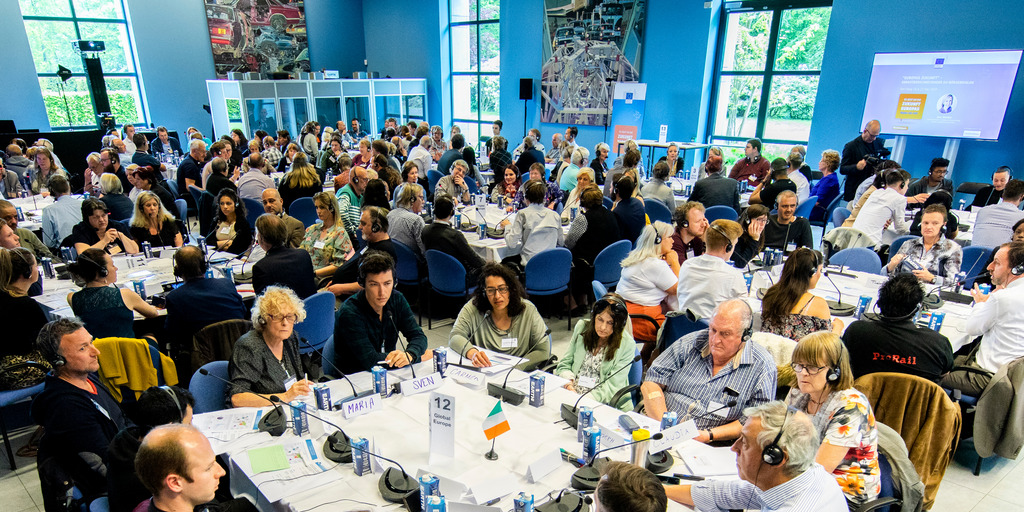
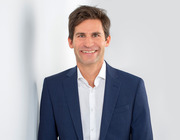
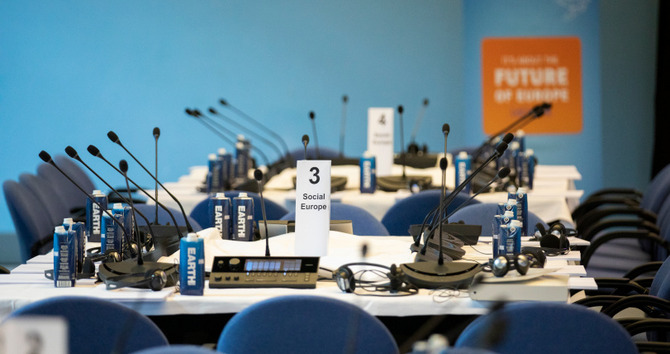
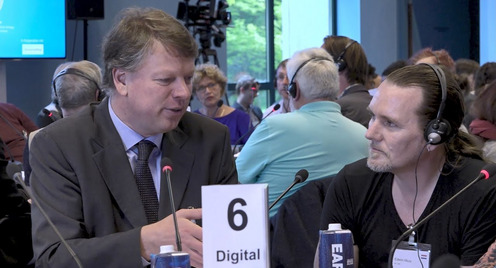
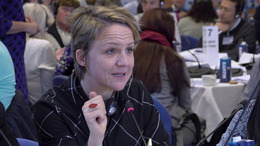
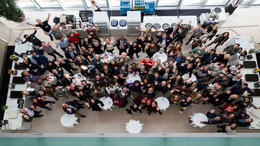
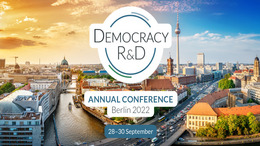
![[Translate to English:] Menschen diskutieren beim Bürgerdialog](/fileadmin/files/_processed_/b/e/csm_1045556754Europawerkstatt-9302_1069ead8ad.jpg)


